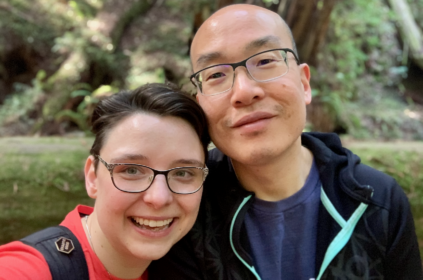For patients with stage 4 colorectal cancer that has spread to the liver, the shortage of donor organs and challenges in the allocation system often make receiving a transplant difficult. In a groundbreaking procedure, surgeons at Northwestern Medicine successfully divided a deceased donor liver into two sections, transplanting one portion into the intended recipient and the smaller part into a patient with terminal colorectal cancer who lacked a suitable living donor. This approach is now available through a specialized clinical program at Northwestern Medicine known as Colorectal Metastasis to Liver Extraction with Auxiliary Transplant and Delayed Resection (CLEAR).
Expanding Transplant Access
Dr. Satish Nadig, a transplant surgeon and director of the Northwestern Medicine Comprehensive Transplant Center, emphasized the significance of the program. “The CLEAR initiative is revolutionary because it addresses an unmet need in a specific patient group,” he said. “Since liver transplants for colorectal cancer are not widely performed in the U.S., these patients are often deprioritized on transplant waitlists, leaving them with few options beyond palliative care. We refuse to accept that limitation.”
In fall 2024, 53-year-old Barclay Missen of Chicago became the first Northwestern Medicine patient to receive a liver transplant using the Resection and Partial Liver Transplantation with Delayed Total Hepatectomy (RAPID) technique after failing to find a living donor. This two-stage procedure offers a chance of survival for cancer patients who cannot endure the long wait for a traditional transplant.
Initially, a portion of a deceased donor’s liver, allocated to a higher-priority recipient, was removed. The larger section was transplanted into the primary recipient, while the smaller segment was placed in Missen, who simultaneously had part of his cancerous liver removed. Over time, the transplanted section grew, allowing for the removal of the remaining diseased liver tissue.
Remarkable Recovery
Four months after the surgery, Missen shows no signs of cancer and no longer requires additional therapy.
“This option through the CLEAR program is a game changer,” said Dr. Zachary Dietch, a Northwestern Medicine transplant surgeon. “We know that a liver transplant can dramatically improve survival rates for these patients. Without it, five-year survival with chemotherapy is just 10%, whereas a transplant can increase survival to 80%.”
A Life-Altering Diagnosis
Colorectal cancer is the third most common cancer worldwide, with up to 60% of cases leading to liver metastasis.
Missen’s journey began in December 2021, when he visited Northwestern Memorial Hospital for a routine colonoscopy. Doctors discovered a large tumor in his colon, diagnosing him with stage 4 colorectal cancer. Despite chemotherapy and multiple procedures to manage the disease, his liver sustained severe damage, and by April 2024, he required a transplant.
Despite efforts to find a living donor among family and friends, none were compatible. Facing limited options, Missen’s medical team presented him with the RAPID procedure as a potential solution.
“When I learned about RAPID, I was overwhelmed with hope,” Missen said. “The chance for a cure, along with the opportunity to help others in similar situations, was incredible.”
A Generous Gift
By October 2024, Missen was matched with a donor liver, initially allocated to Kelli Podrez, a 57-year-old Illinois resident suffering from severe cirrhosis. Understanding that the liver could be split and shared, Podrez agreed to donate a portion to Missen.
“If I could survive without the whole liver and help save someone else’s life, why wouldn’t I share it?” said Podrez.
On October 23, 2024, a team of Northwestern Medicine surgeons performed the eight-hour surgery, removing a hand-sized section from the donor liver while using a specialized machine to maintain its viability. The larger portion was transplanted into Podrez, while the smaller segment was placed in Missen, alongside half of his cancerous liver.
Within two weeks, the transplanted portion grew significantly, enabling doctors to remove the remaining cancerous liver. By November 7, 2024, Missen’s new liver was fully supporting his body.
Looking Toward the Future
Both Podrez and Missen have recovered well, with no complications. Today, Missen is cancer-free and eager to resume his favorite activities, including woodworking, painting, and spending time with his family.
Reflecting on his experience, he shared, “I’m overwhelmed with gratitude—for the donor, for Kelli’s generosity, and for my incredible medical team. Their courage and skill saved my life.”
Advancing Transplant Oncology
Dr. Nadig noted the rarity of such a procedure, emphasizing Northwestern Medicine’s role in advancing transplant oncology. The CLEAR program’s success is now being tracked in a research registry, evaluating the outcomes of its first 80 patients.
“There is mounting evidence that cancer patients who receive transplants can achieve outcomes equal to or better than those undergoing transplants for traditional reasons,” said Dr. Dietch. “This is the future of transplant medicine, and we’re committed to giving more patients the hope they deserve.”
Editor’s Note: Get Involved
Cancer doesn’t discriminate. WHATNEXT and its partners are interested in amplifying the voices of those from all identities and backgrounds. If you have a cancer journey to share, reach out here to learn more about how your voice can help spread awareness and inspire individuals from all walks of life.
liver cancer Liver Transplant Northwestern Medicine Comprehensive Transplant Center Transplant Access
Last modified: April 1, 2025










